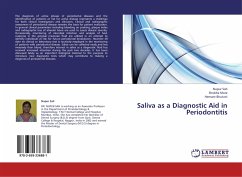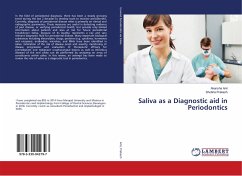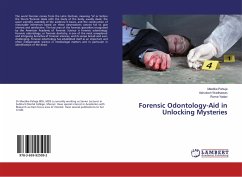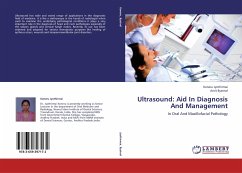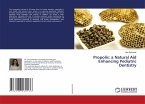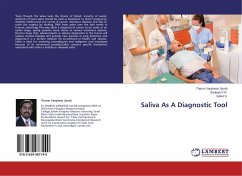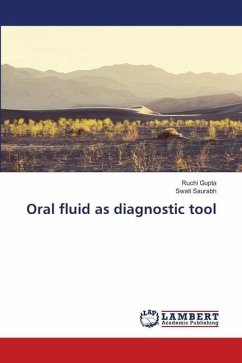The diagnosis of active phases of periodontal diseases and the identification of patients at risk for active disease represents a challenge for both clinical investigators and clinicians. Clinical and radiographic assessment of periodontal disease remains the basis for patient evaluation. In general clinical parameters including bleeding on probing, plaque index and radiographic loss of alveolar bone are used to assess disease severity. Occasionally, monitoring of microbial infection and analysis of host response in the gingival crevicular fluid are utilized in an attempt to identify individuals at risk for future periodontal breakdown. However till date no clinical or laboratory test is routinely employed in the monitoring of patients with periodontal disease. Saliva can be collected easily and less invasively than blood, therefore interest in saliva as a diagnostic fluid has received increased attention during the past two decades. It has been discussed lately as an important biological material to the purpose to introduce new diagnostic tests which may contribute to making a diagnosis of periodontal diseases.

